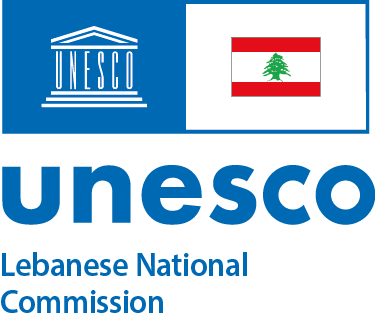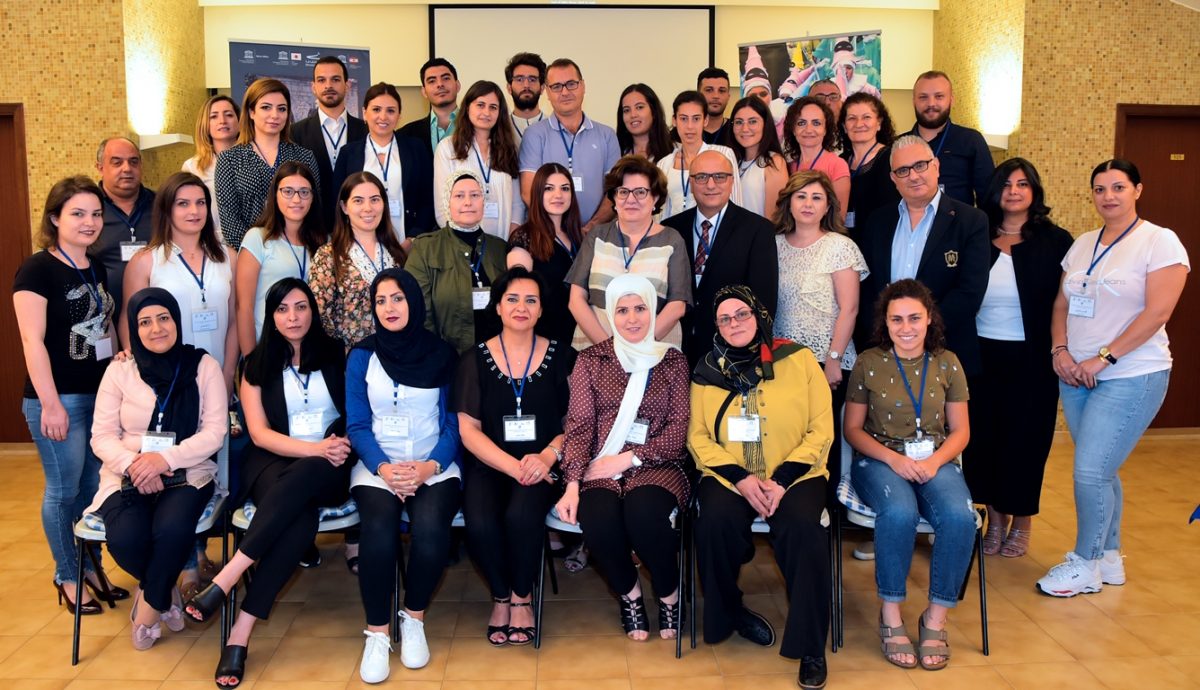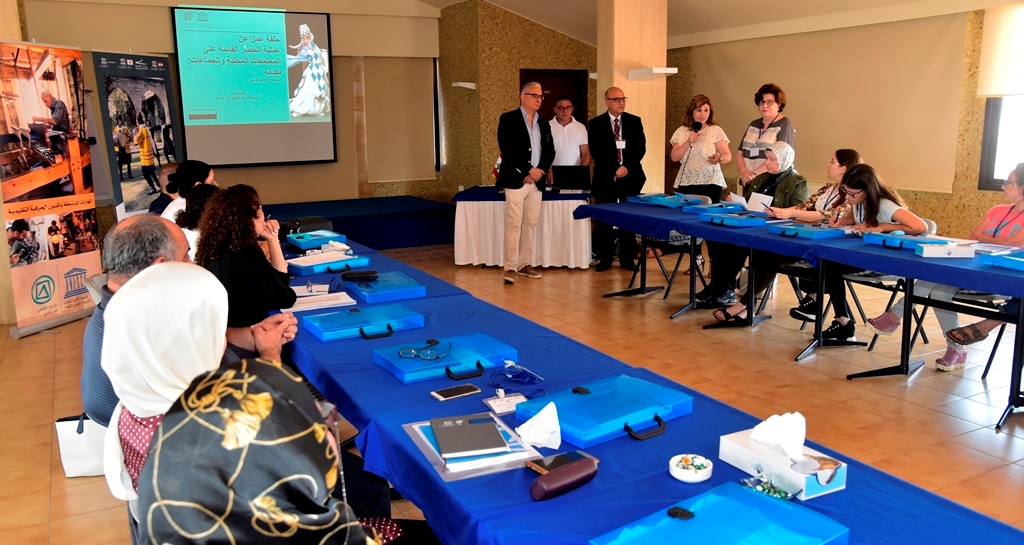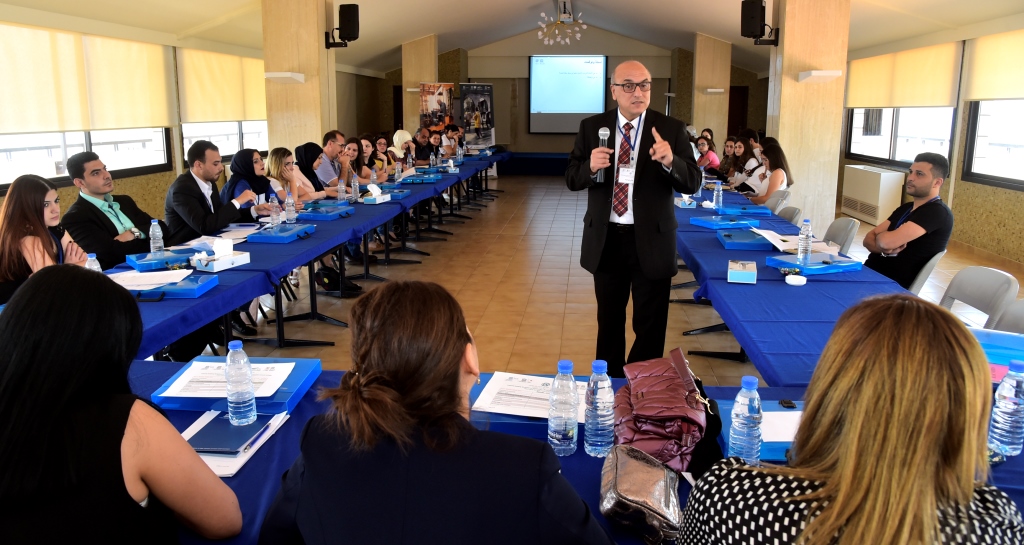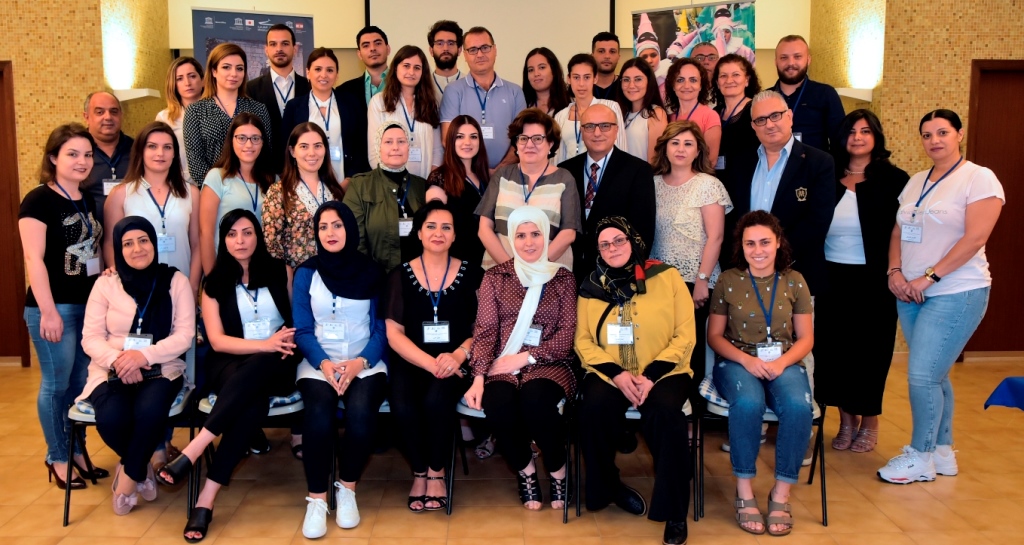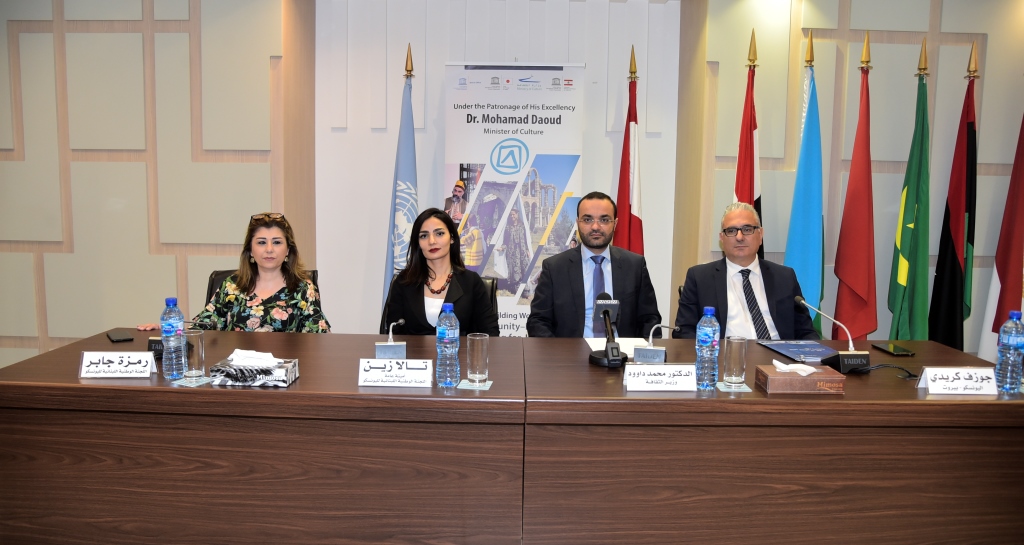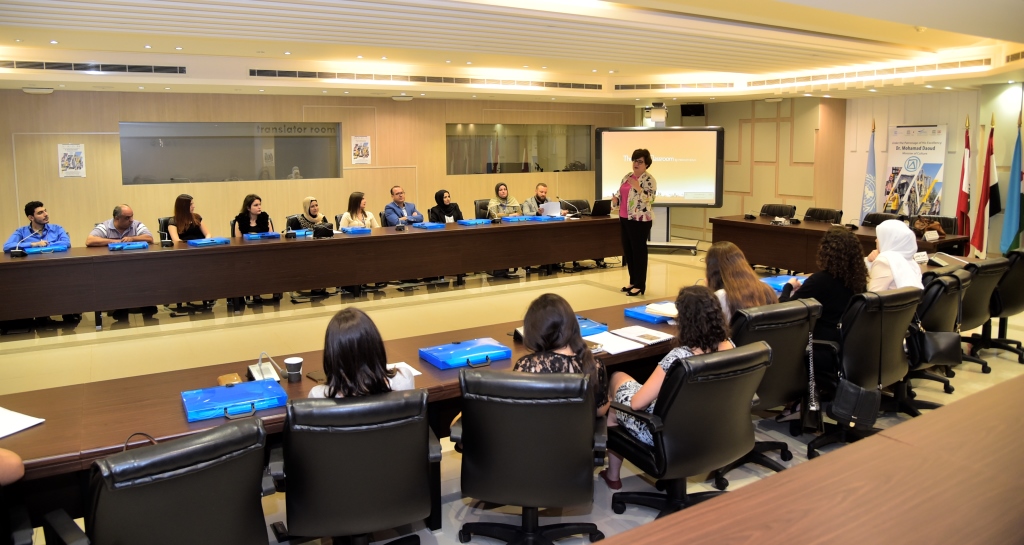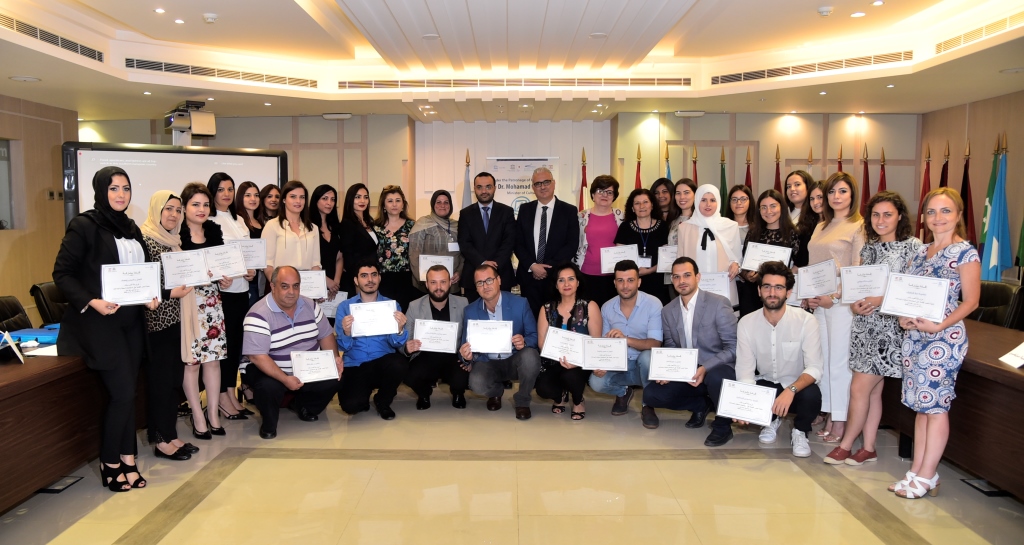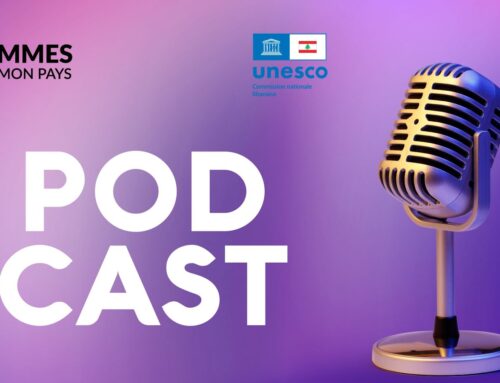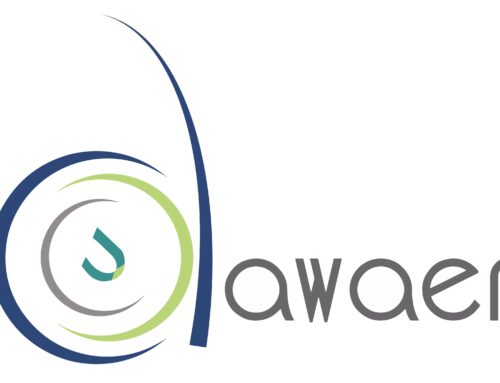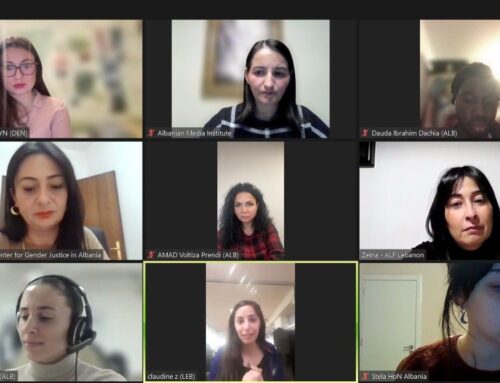In 2007, Lebanon ratified the Convention for the Safeguarding of Intangible Cultural Heritage. Recently, and in the context of the development of a sectoral cultural policy for the safeguarding of ICH, Lebanon undertook a needs assessment on the situation of institutional capacities for safeguarding intangible cultural heritage. This evaluation showed that further support is needed to build a methodology and capacity in this area to develop community lists of the different intangible cultural heritage in Lebanon and that there is a need to build capacity for the elaboration of effective and practical safeguarding plans.
Against this backdrop, and to address Lebanon’s needs and complement the efforts of the Ministry of Culture, UNESCO Beirut office, with the financial support of the Government of Japan, organized a ten-day capacity-building workshop on community- based inventorying for intangible cultural heritage. The workshop, held between 24 June and 5 July 2019 in Notre Dame du Mont– Fatka, was organized in partnership with the Lebanese National Commission for UNESCO. It brought together 30 participants from NGOs, municipalities, and universities, and aimed at introducing them to the Convention for the Safeguarding of Intangible Cultural Heritage, and at building their capacities and providing them with key skills to identify and inventory intangible cultural heritage in Lebanon.
The workshop was divided into two parts. The first part consisted in a training delivered by experts Dr. Annie Tabet and Dr. Hani Hayajneh; it introduced participants to various topics, including: the Convention for the Safeguarding of the Intangible Cultural Heritage, the inventorying framework and issues of ethics and responsibilities, information generation methods and techniques, data organization and use, from inventorying to safeguarding plans. The second part consisted of a field work carried out by the participants in various regions in Lebanon to inventory practices of “dabkeh” dance, an essential component of Lebanon’s intangible cultural heritage.
The closing ceremony was held on 5 July 2019 at UNESCO Beirut Office, and was attended by high-level personalities, including Lebanon’s Minister of Culture Dr. Mohammad Daoud, Secretary-General of the Lebanese National Commission for UNESCO Dr. Tala Zein, and UNESCO Beirut’s Programme Specialist for Culture Eng. Joseph Kreidi.
Speaking of the importance of intangible cultural heritage, Kreidi said: “The importance of intangible cultural heritage lies not in its cultural manifestation itself, but in the rich knowledge and skills transferred through it from generation to generation. The social and economic value of this transfer of knowledge is as important to minorities as to large social blocs, and to developing countries as well as to developed countries. Hence the value of this project which builds the capacity of the local community to inventory intangible cultural heritage”.
As to Dr. Zein, she highlighted that “intangible cultural heritage is a key component of our identity. Safeguarding it is therefore a means to safeguard our national identity”. She also mentioned that this joint initiative between LNCU and UNESCO Beirut is part of a series of projects and programmes aiming at raising awareness on intangible cultural heritage and assisting the government in developing a sectoral cultural policy for the safeguarding it.
For his part, Minister Daoud praised UNESCO for organizing this workshop, highlighting that such initiative is “the best way to protect cultural heritage and to raise the public’s awareness of it”. Minister Daoud expressed regret that “intangible cultural heritage faces the danger of being lost or forgotten because new generations are not aware of it or do not practice it”. “Bringing intangible cultural heritage back to life requires shedding light on it and encouraging civil society and local communities to make use of it in daily life”, he added.
Participants expressed their great satisfaction with the knowledge and experience they acquired during this workshop. Ms. Pia Mansour, from NGO Biladi, said: “We are an NGO that is active in the field of the protection of heritage. However, our work mainly focuses on tangible cultural heritage. Through this workshop, I realized that intangible cultural heritage is as important as the tangible one. I was tasked with inventorying dabkeh practices in Keserwan region. Through this fieldwork I met great dabkeh dancers and I became fully aware that dabkeh is part of our national identity, hence the need to safeguard it and pass it on to future generations”.
Ms. Sohaila Mortada, from Imam Sadr Foundation, highlighted that the workshop was a great opportunity to understand the Convention for the Safeguarding of Intangible Cultural Heritage and to acquire key skills in inventorying intangible cultural heritage practices in Lebanon. She added that “The experts’ presentations were brilliant, and they delivered the training in a very interactive way, which allowed participants to brainstorm together on issues related to cultural heritage”. Ms. Mortada said that she carried out the fieldwork exercise in Tyre, where she met with people who could dance dabkeh even without music: “When musical instruments were not there, when there was no dabkeh song, an old person would play music on a tea cup and everyone would dance. This shows how important and vital dabkeh is in our culture”.
Mr. Sarkis el Cheikh Douaihy, from Zgharta, said that he chose to inventory a very specific form of dabkeh, which originated in his region (Zgharta/North Lebanon). He said that the dabkeh practiced there is rooted in history as people used to dance it to celebrate the military prowess and victories of the local leaders against Ottoman rulers in the 19th century. “Dabkeh is part of our culture, history, tradition, and local identity. If we don’t safeguard it, we lose part of ourselves”.
